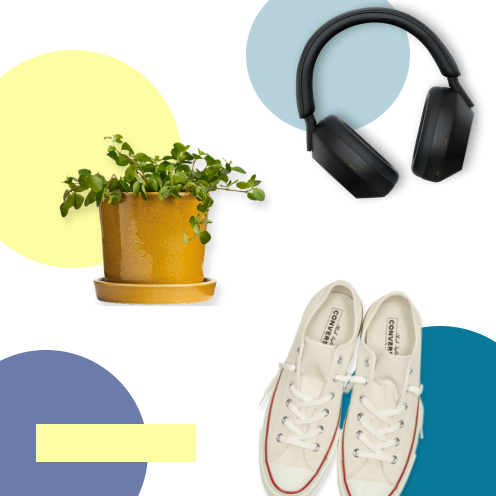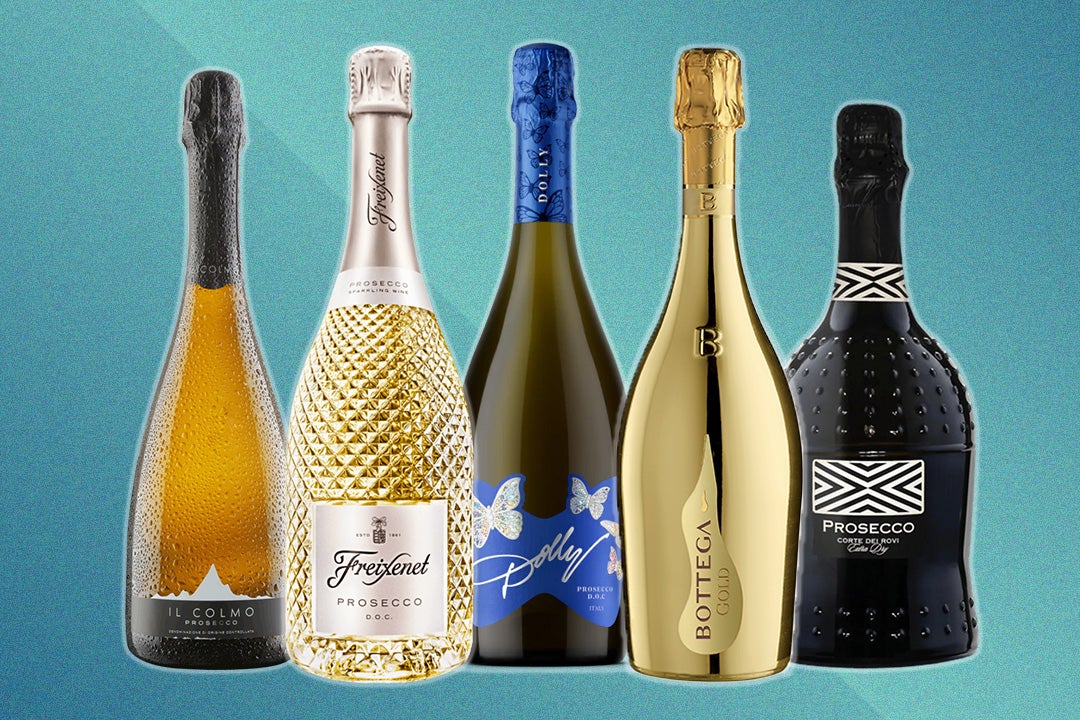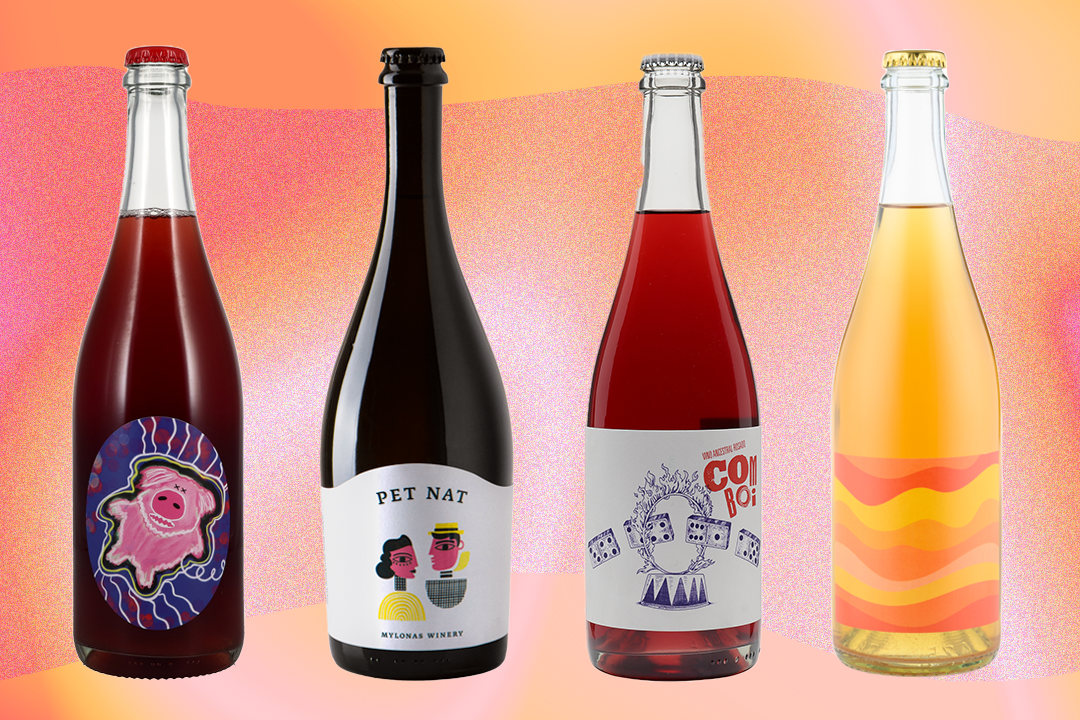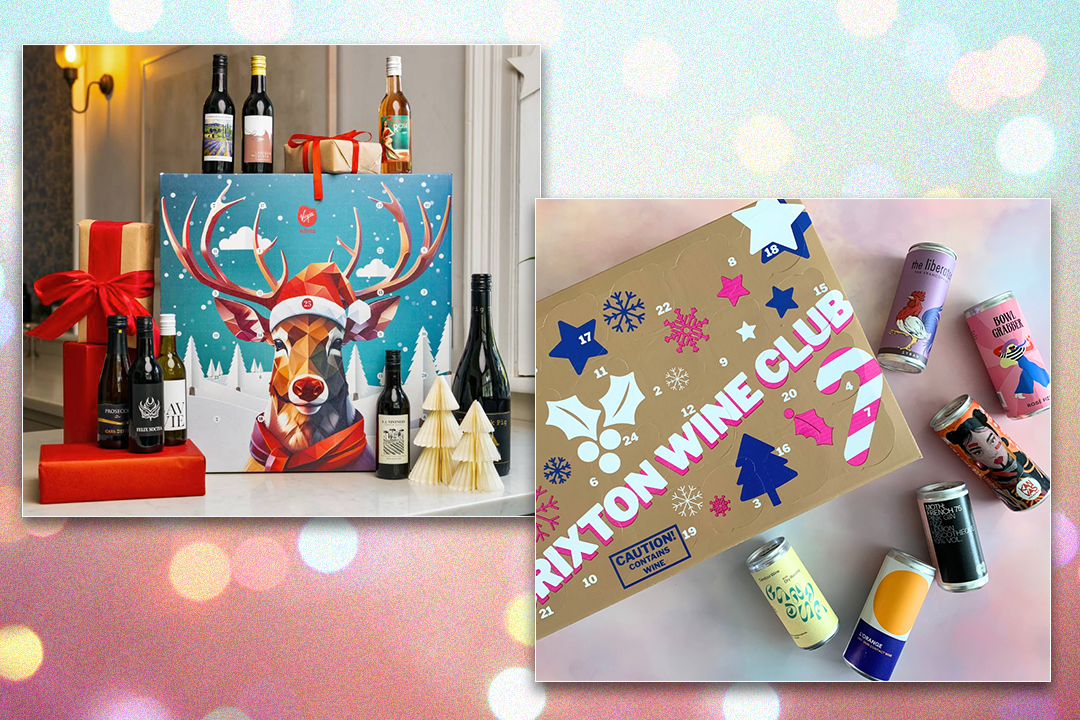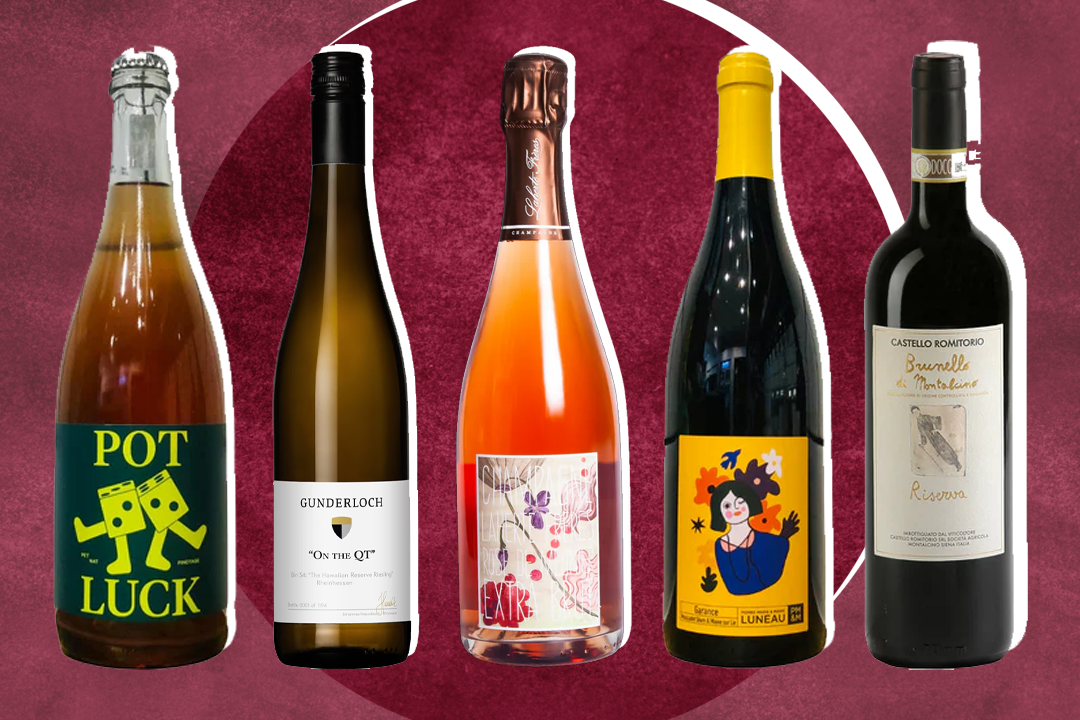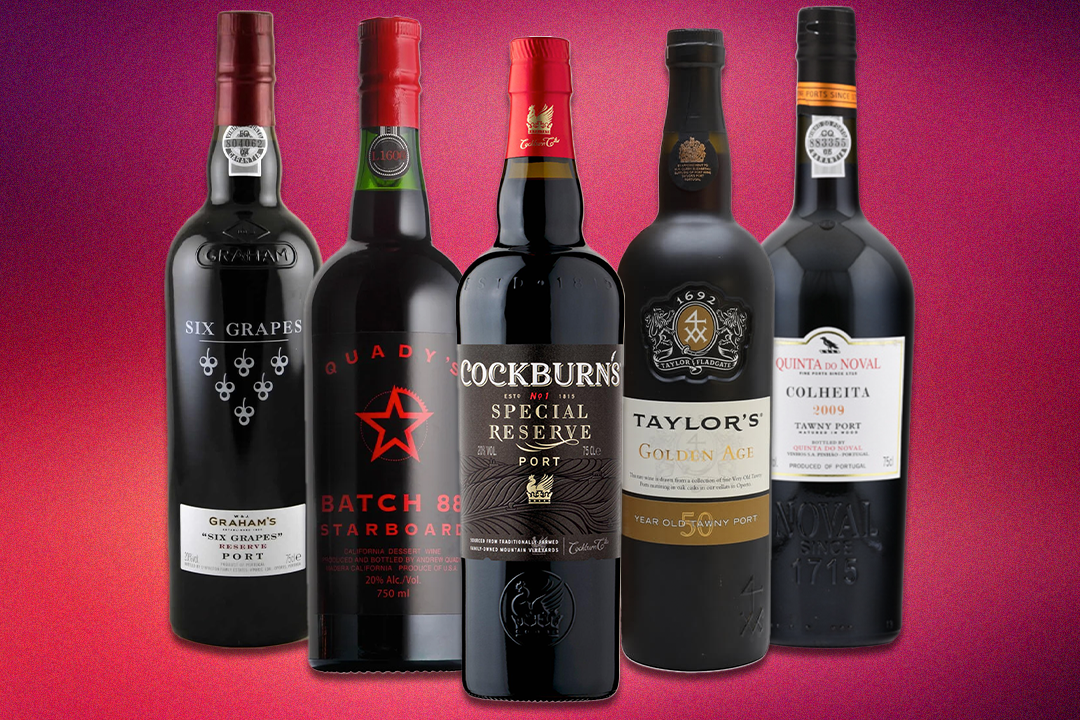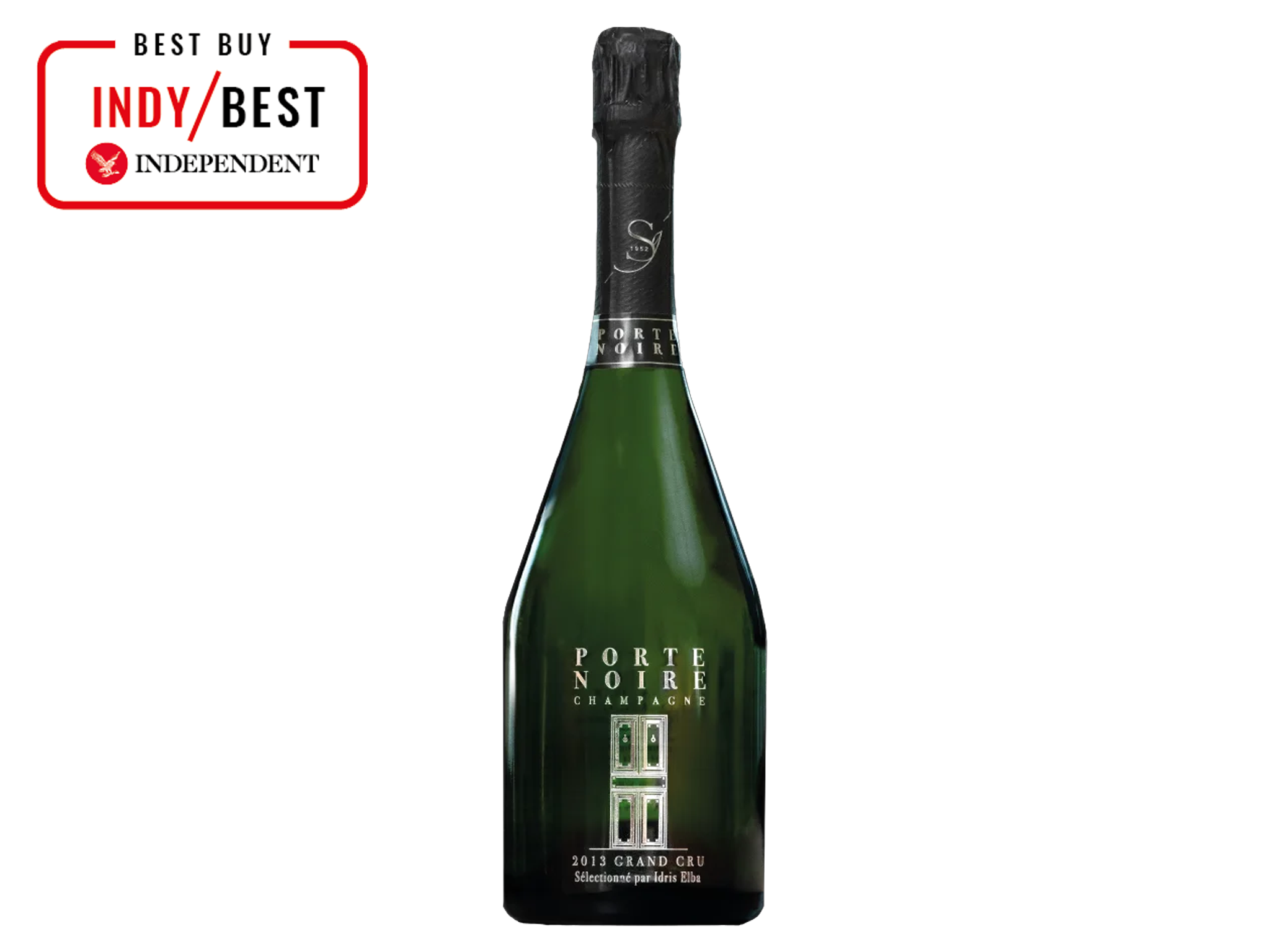
The Independent's journalism is supported by our readers. When you purchase through links on our site, we may earn commission. Why trust us?
19 best champagnes that will make your celebrations go off with a bang
From Aldi to Veuve Clicquot, these are the finest French bubbles for any occasion
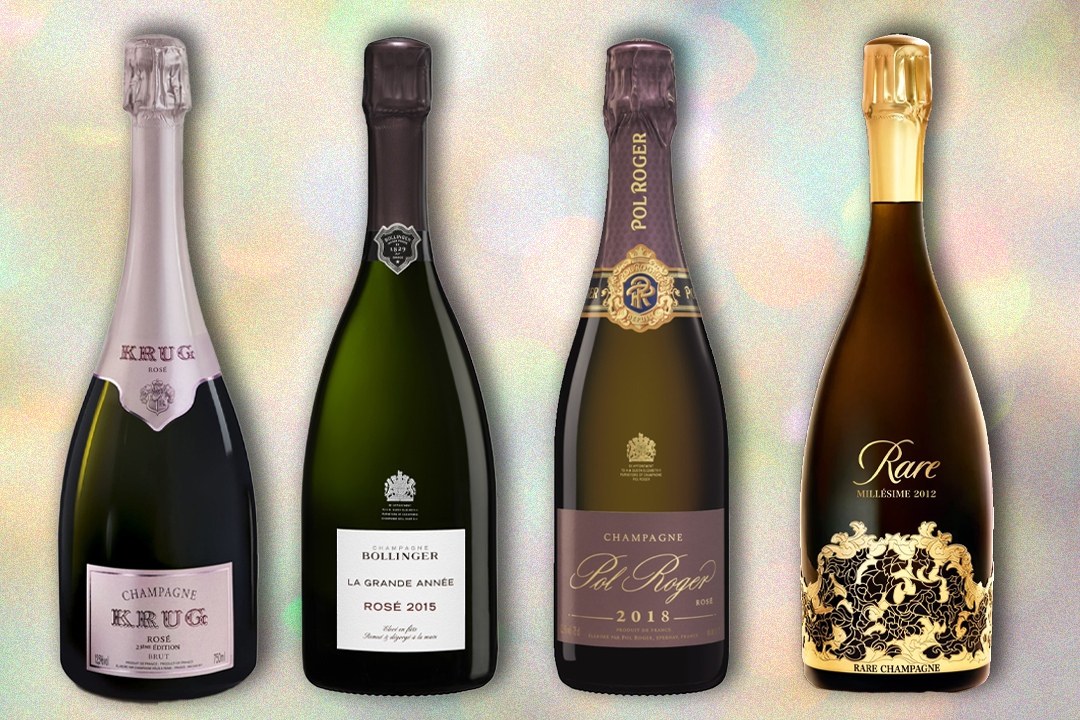
There’s nothing quite like champagne, and if you’re in the market for a bottle of bubbly, you’ve come to the right place.
We all know champagne can cost a pretty penny (although some of the bargains below would beg to differ), but the right bottle absolutely justifies the cost. On the other hand, an underwhelming bottle can also really sting.
Luckily for you, some of us have been hard at work testing all the interesting independent creations, the budget jewels, and the liquid gold of legendary champagne houses.
By virtue of its strict regulations, it’s the details and nuances that matter so much in champagne production, which is why when everything comes together, it’s so, so special. From supermarket fizz that outperforms bottles twice the price to unforgettable luxury indulgence – and everything in between – this is a curated guide to the best champagnes whatever the occasion and budget.
How we tested

Each bottle was chilled in the fridge to between 6C and 9C. Once opened, the sparkling wine was allowed to sit in the glass for 10 minutes, to open up and warm slightly to the ideal drinking temperature of 8C to 13C before tasting. Only the ones that impressed us the most made it into our final line-up.
The best champagnes for 2024 are:
- Best overall – Porte Noire 2013 vintage grand cru: £79.75, Drinksone.com
- Best budget bottle – Veuve Monsigny champagne brut: £14.99, Aldi.co.uk
- Best for sweeter tastes – Sainsbury’s demi-sec champagne: £23, Sainsburys.co.uk
- Best for breakfast celebrations – Emile Dupuis brut: £26.22, Perfectcellar.com
- Best special gift – Bollinger La Grande annee rosé 2015: £152, Thefinestbubble.com
Porte Noire 2013 vintage grand cru

- Best: Overall
- Vintage: 2013
- Grape variety : Chardonnay
- ABV: 12.5%
- Tasting notes: Cooked apple, pear, butter and lime
- Why we love it
- Bright flavour
- Still light
This exceptional blanc de blancs was crafted by the renowned Sanger Champagne house in partnership with Idris Elba. Its history is incredible and a testament to the quality of the liquid itself. The nose presents fragrant aromas of ripe pear, dried tropical fruits and rich buttery scent. The first sip through the generous cloud of fizz unfolds zippy lemon and lime, more juicy pear and an autumnal hint of spiced apple turnover. These bright flavours are cleansed wonderfully by a crisp finish generated by the chalky terroir. Creating such a vivid, buttery and bold expression that retains its lightness is what makes this fizz so exquisite.
Veuve Monsigny champagne brut
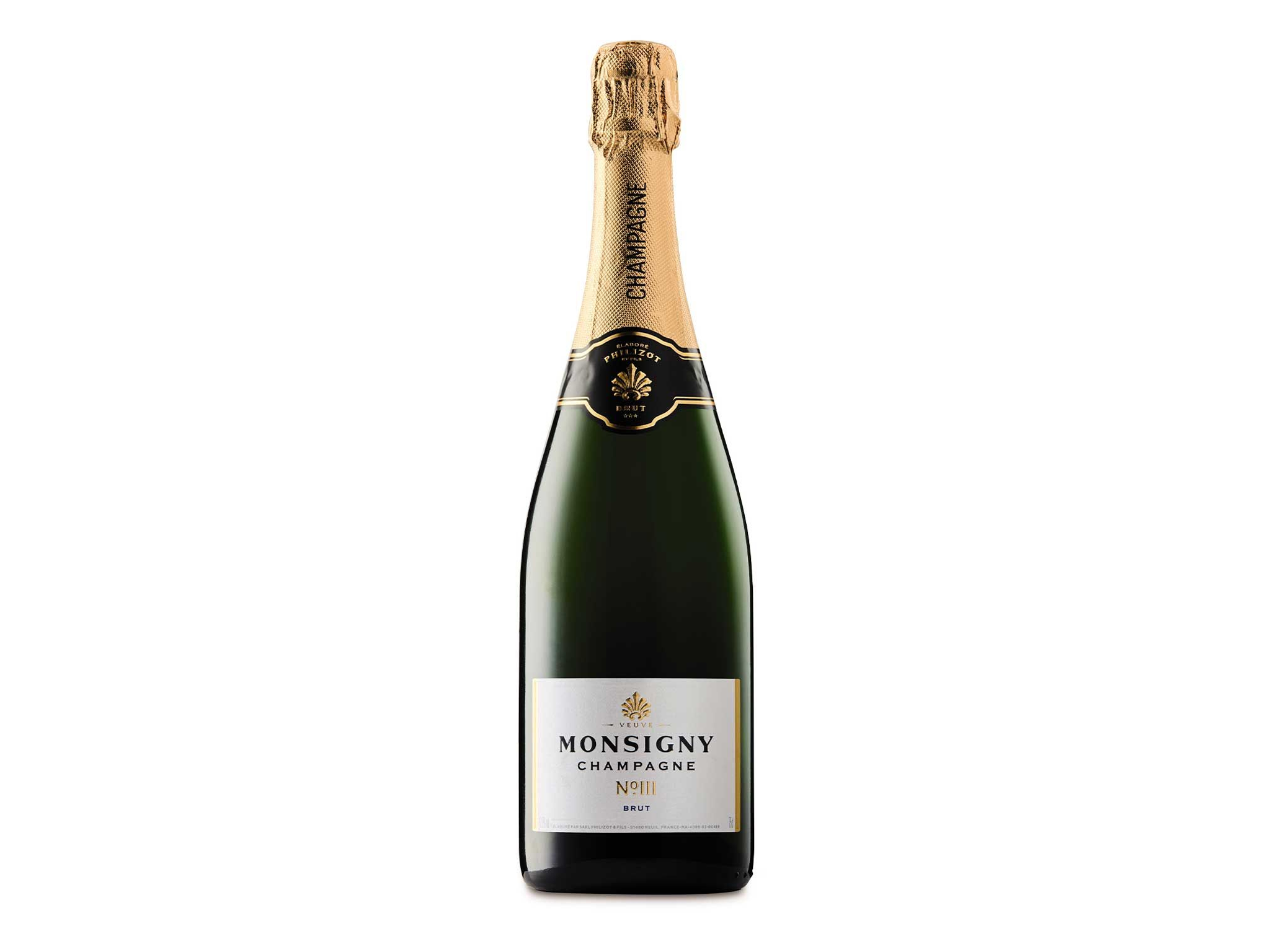
- Best: Budget champagne
- Vintage: N/A
- ABV: 12.5%
- Tasting notes: Apple, peach, buttery brioche
- Why we love it
- Affordable
- Refreshing
Less of a well-kept secret than it once was, Aldi’s veuve monsigny is the definitive budget bubbly that punches above its price tag. Crafted by Philizot et Fils in the Marne Valley, this equal blend of chardonnay, pinot noir, and pinot meunier delivers baked apple, bright peach, and buttery brioche flavours with a soft mousse and crisp acidity. Perfect for toasting or mixing into a classy bucks fizz, it’s no wonder this refreshing champagne is a UK favourite. Affordable yet impressive, it’s the definition of bang-for-buck brilliance.
Sainsbury’s demi-sec champagne
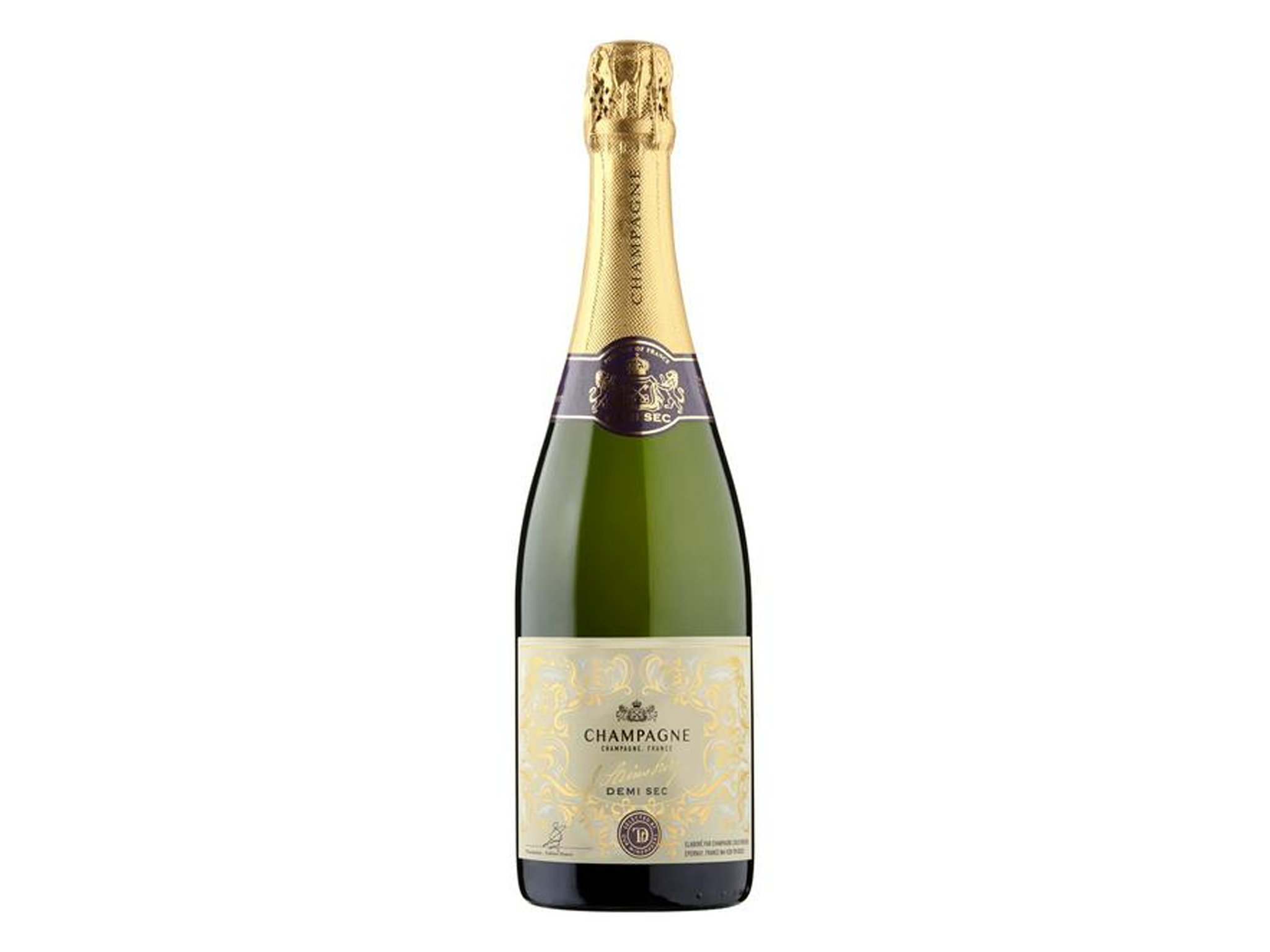
- Best: For a sweeter taste
- Vintage: NV
- ABV: 12%
- Tasting notes: Apple, stone fruits, and toasted bread
- Why we love it
- Sweet and fruity
- Affordable
Sticking with supermarkets offering smooth champagne that easily outperforms more expensive bottles, this demi-sec from Sainsbury’s is an absolute gem. If you love your slightly sweeter, fruitier champagnes, then this is the one for you.
Made by the Louis Kremer Champagne House in Reims, you can expect ripe stone fruits and crisp apple as well as toasted bread and minerality. It’s not cursed by the excessive acidity that can hurt champagnes at this level, and it would be a wonderful pairing with some spicy meals too. A steal at this price.
Waitrose rosé champagne brut
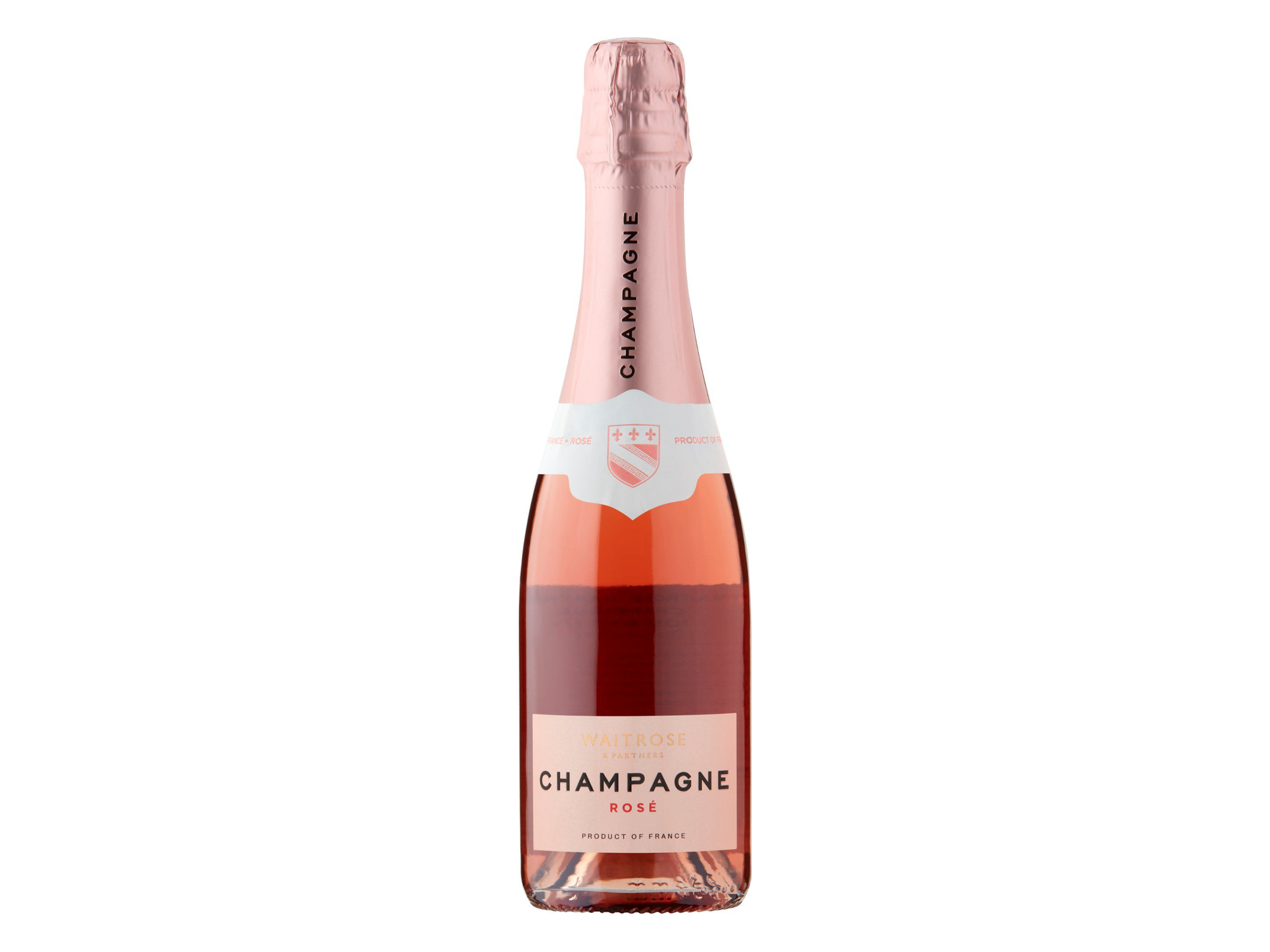
- Best: Rosé champagne
- Vintage: NV
- Grape variety: 100% pinot noir
- ABV: 12.5%
- Tasting notes: Strawberry, cherry and cream
- Why we love it
- Depth
- Fresh
Fresh, fruity, and utterly charming, this rosé champagne is crafted exclusively for Waitrose by Maison Alexandre Bonnet. Made from 100 per cent pinot noir, with grapes sourced from its premium vineyards around Le Riceys, it exudes fragrant red cherry as well as gloriously pungent wild strawberry aromas. Two years on the lees lends creamy finesse, while a touch of skin contact adds depth. It’s straight-forward, easy to love rosé champagne that feels like a glass of summer – delicious.
Emile dupuis brut
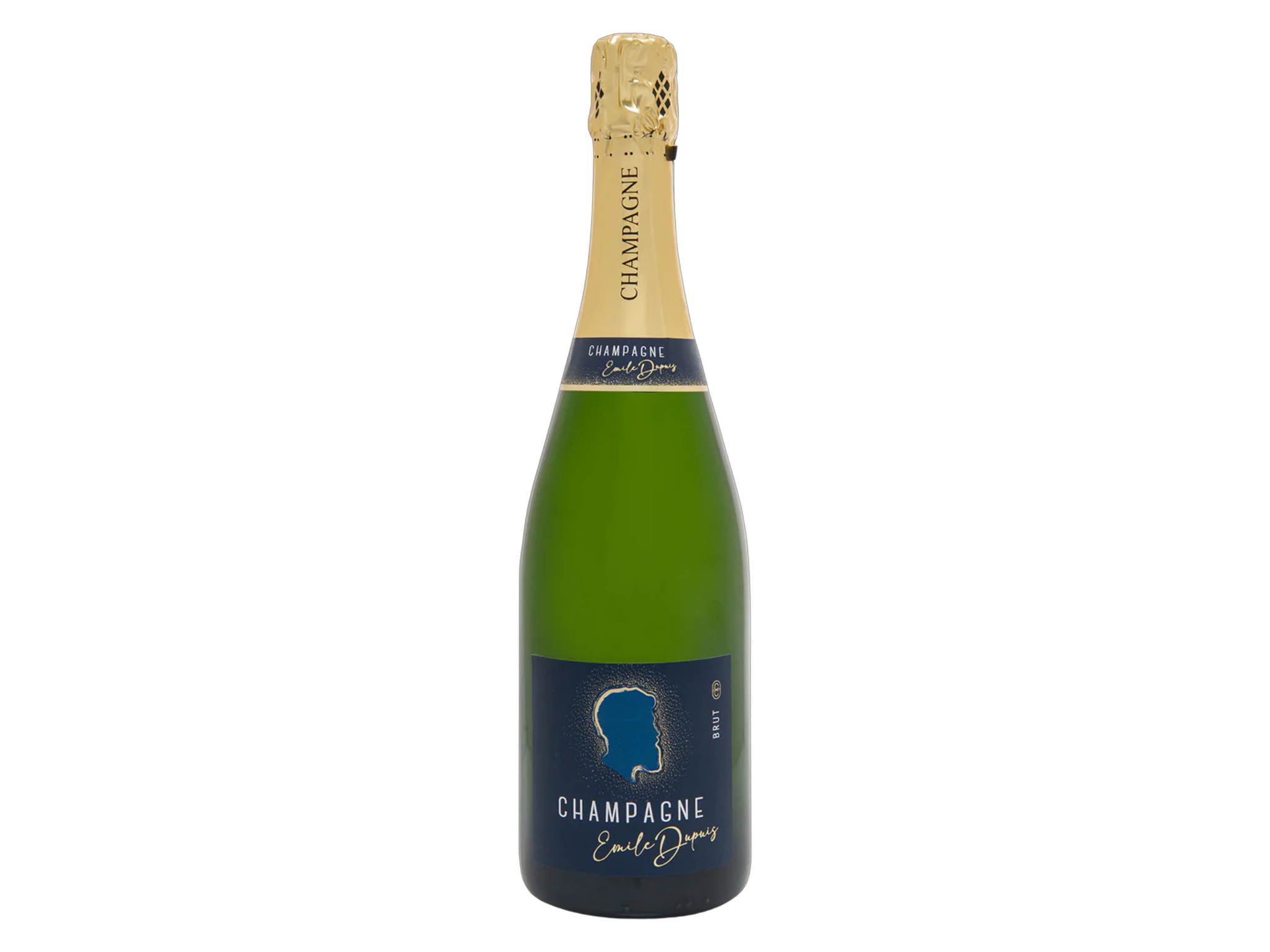
- Best: For breakfast celebrations
- Vintage: NV
- Grape varieties : Chardonnay, pinot noir, pinot meunier
- ABV: 12.5%
- Tasting notes : Vanilla, lime, fresh bread and peach
- Why we love it
- Complex flavours
- Perfectly balanced
A true homage to French chef Emile Dupuis, this refined champagne boasts two years of ageing before disgorgement, resulting in a complex and elegant cuvée, and one that leans towards a richer profile. White fruits, lime and freshly baked bread are complemented by beautiful fresh notes of vanilla, almonds and ripe peach. With its rich, brioche-laden palate and smooth bubbles, it’s perfect alongside buttery croissants or a posh breakfast.
Pommery ‘brut royal’ champagne
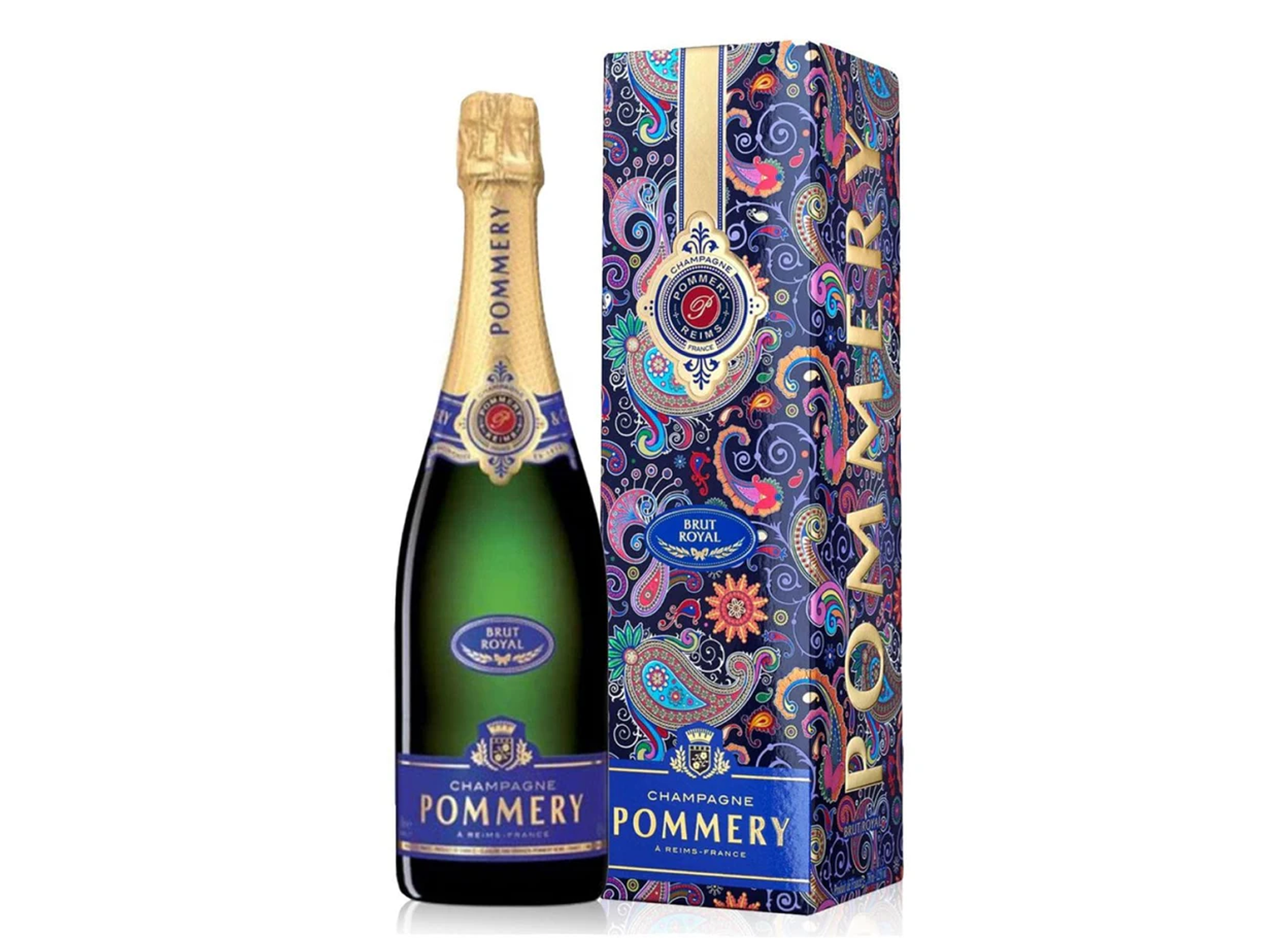
- Best: For affordable luxury
- Vintage: NV
- Grape varieties : 35% chardonnay, 35% pinot noir and 30% pinot meunier
- ABV: 12.5%
- Tasting notes: Apple, peach, buttery brioche
- Why we love it
- Perfectly balanced
- Affordable
This iconic champagne owes its existence to Madame Pommery, who revolutionised the style by creating a crisp, dry brut ideal for any occasion. A pale lemon hue hints at its vibrant character, offering aromas of brioche, green apple, and floral honey with a touch of citrus zest – but without sharpness. Aged for at least three years in deep underground cellars, this blend of chardonnay, pinot noir, and pinot meunier is creamy, delicate, and perfectly balanced, delivering a luxury style without the price to match.
Champagne Gremillet ambassadeur brut
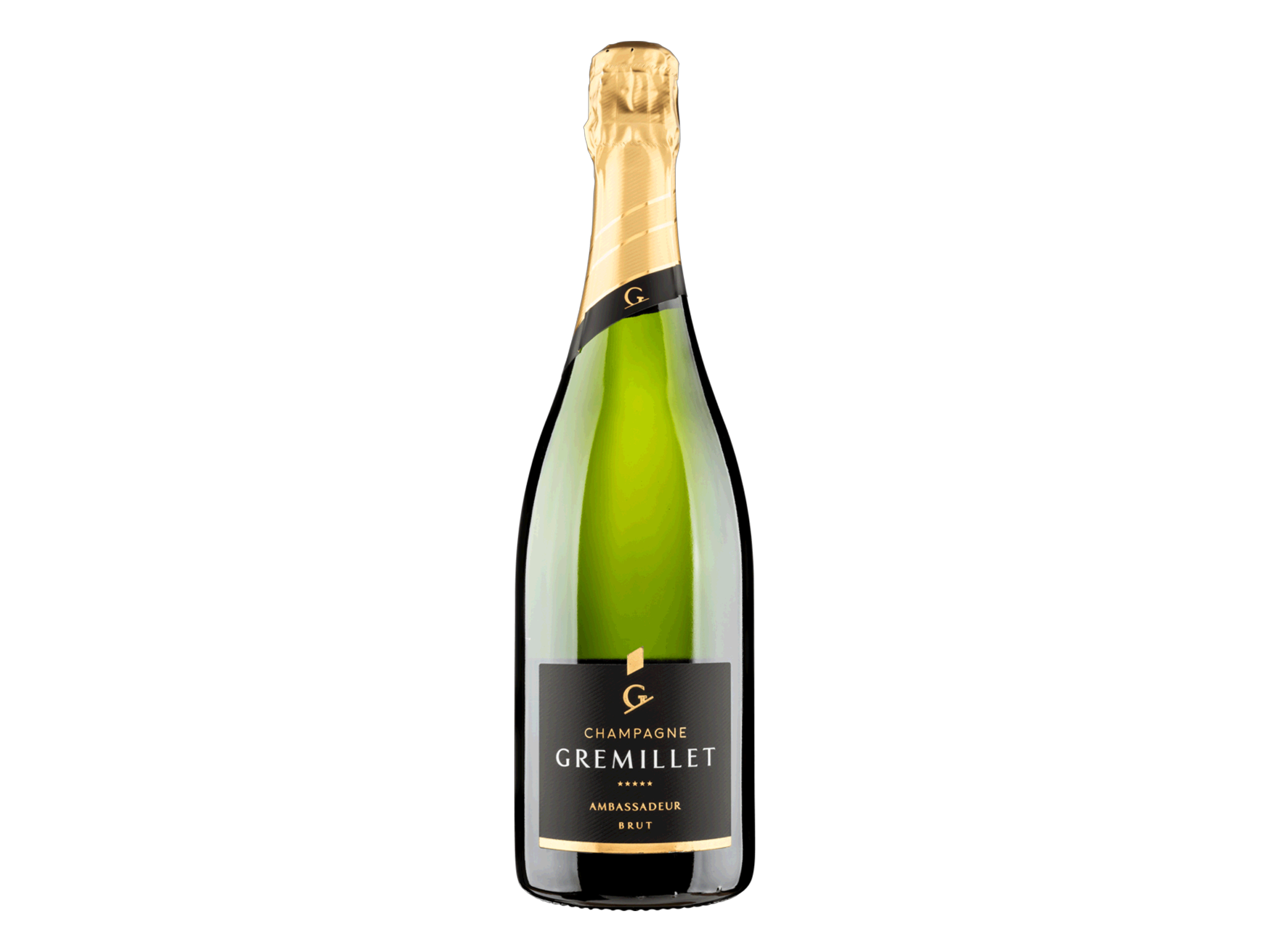
- Best: Reliable all-rounder
- Vintage: NV
- Grape varieties : Pinot noir dominant
- ABV: 12.5%
- Tasting notes: Peach, biscuit and pear
- Why we love it
- Elegant
- Reliable
This small but beautiful family-owned champagne house is judged by its flagship ambassadeur brut because it’s made such a name for itself. Off the bat, fresh floral aromas flood the nose flanked by sweet brioche and baked biscuit. Fresh peach and vivid citrus round out the profile, and 18 months of ageing on lees delivers a fine mousse and a crisp, rich elegance to the finish. Forever reliable, the florality and fruits are just so endlessly quaffable.
Telmont Réserve brut champagne
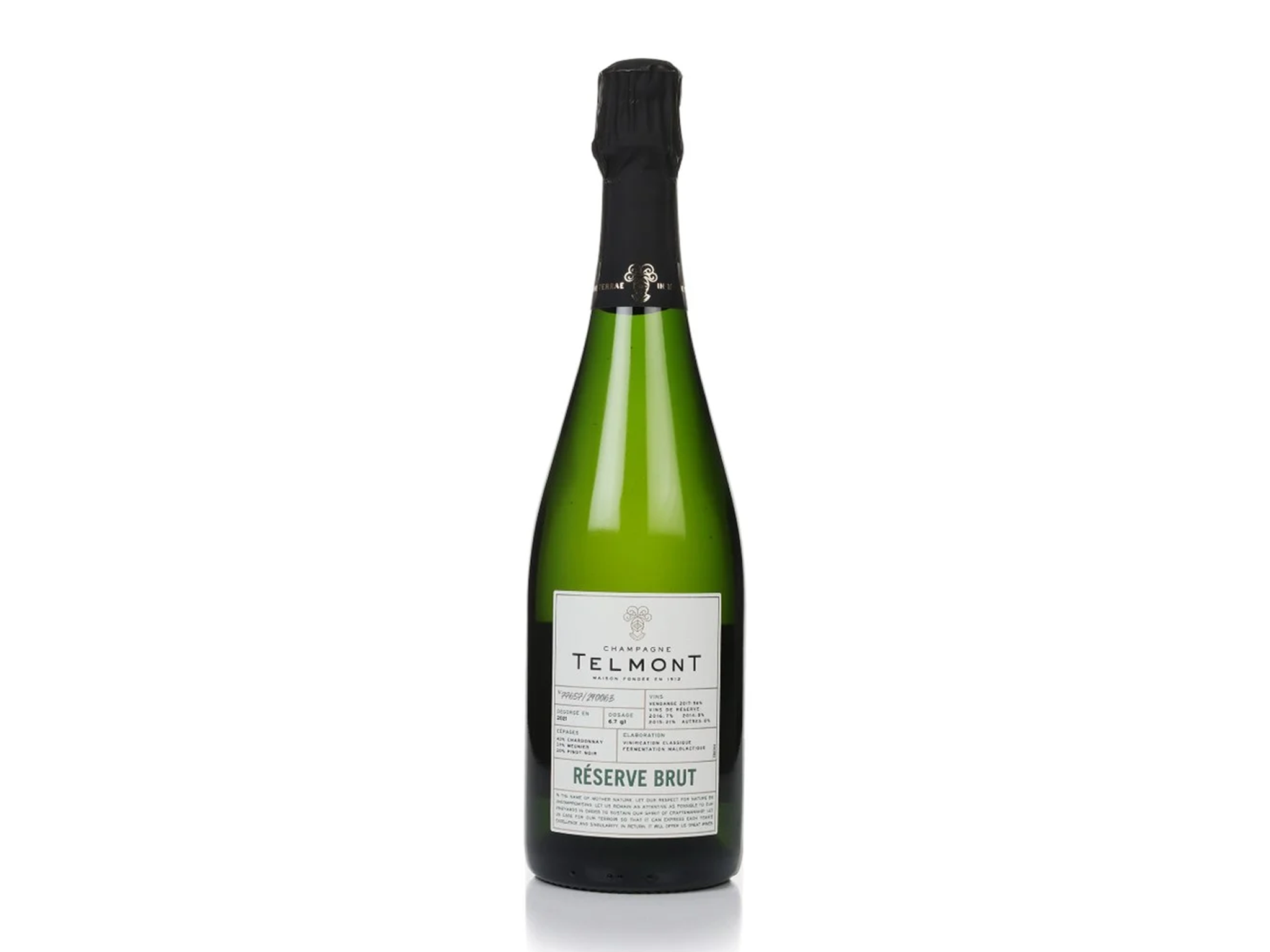
- Best: Liquid gold
- Vintage: NV
- Grape varieties : Chardonnay, pinot noir, pinot meunier
- ABV: 12.5%
- Tasting notes : Baked apple, cream and almond
- Why we love it
- Lively
- Fruity
- Iconic house
Every champagne drinker knows this liquid gold. Ludovic du Plessis took over Telmont in 2020 and has done wonderful things. It stands out for including a higher pinot meunier percentage in the blend, so expect generous supple fruits. Think baked apple, crème brûlée, and almond tart, dressed with candied tropical fruits and cleansed by a lingering, saline finish. The bubbles are lively, the balance of richness, fruit and minerality is on point, and on top of all that, Telmont is pushing for 100 per cent organic vineyards by 2025. Bravo from start to finish.
Taittinger brut prestige rosé champagne
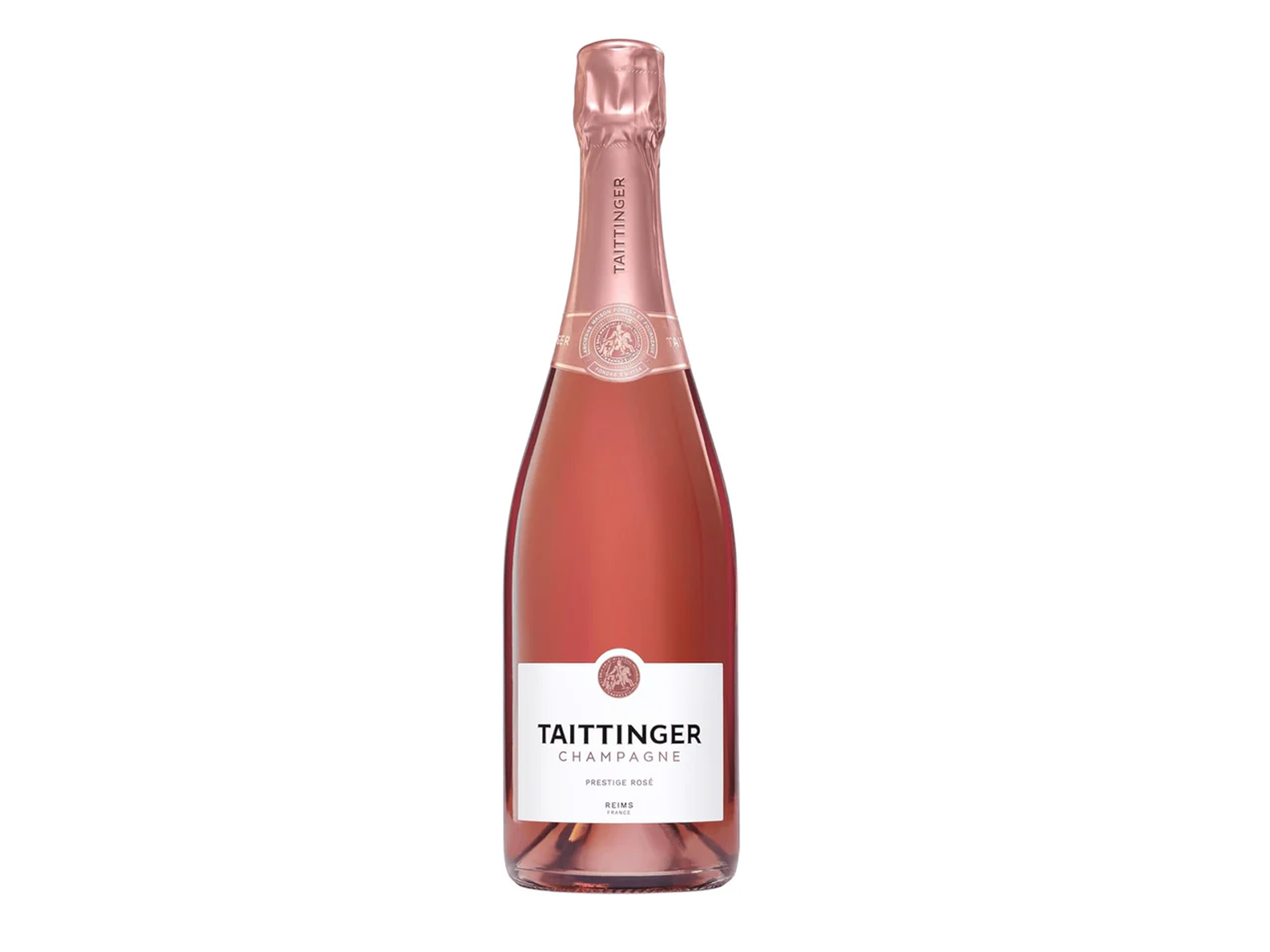
- Best: For pairing with desserts
- Vintage: NV
- Grape varieties : Chardonnay, pinot Noir, meunie
- ABV: 12.5%
- Tasting notes: Strawberry, cherry and blackcurrant
- Why we love it
- Rich blend
- Famous, family-run house
Delicately hued in salmon-pink, this elegant full-bodied rosé champagne is a vibrant blend of 70 per cent pinot noir and 30 per cent chardonnay, with 15 per cent of the wine vinified as red for added richness. Bursting with aromas of wild strawberries, cherries, and blackcurrants, it offers a creamy palate of red fruit, subtle citrus, and a hint of spice. With deep flavours, fine bubbles and a refined mousse, it’s perfect as an aperitif or paired with oysters and fruit desserts. A crisp, fruity indulgence from one of champagne’s last great family-run houses.
Bruno Paillard cuvee 72 3yrs late disgorged

- Best: Complex champagne
- Vintage: NV
- Grape varieties: Pinot Noir, chardonnay, pinot meunier
- ABV: 12%
- Tasting notes : White flowers, blackcurrants, honey and nuts
- Why we love it
- Long, balanced finish
- Luxurious
A celebration of time and precision, this champagne from one of the younger houses matures for 72 months – 36 on lees and 36 post-disgorgement. A secret blend of pinot noir, chardonnay, and pinot meunier from reserve wines as old as 1985 creates a golden-hued masterpiece. Expect aromas of citrus, white flowers, dark fruits and spice, evolving into honeyed, nutty notes on the palate with a creamy texture and luxurious richness. Its delicate mousse, lively acidity, and long, balanced finish make this a luxurious, refined choice for any occasion. So much happening and so much to love.
Pol Roger vintage rosé 2018
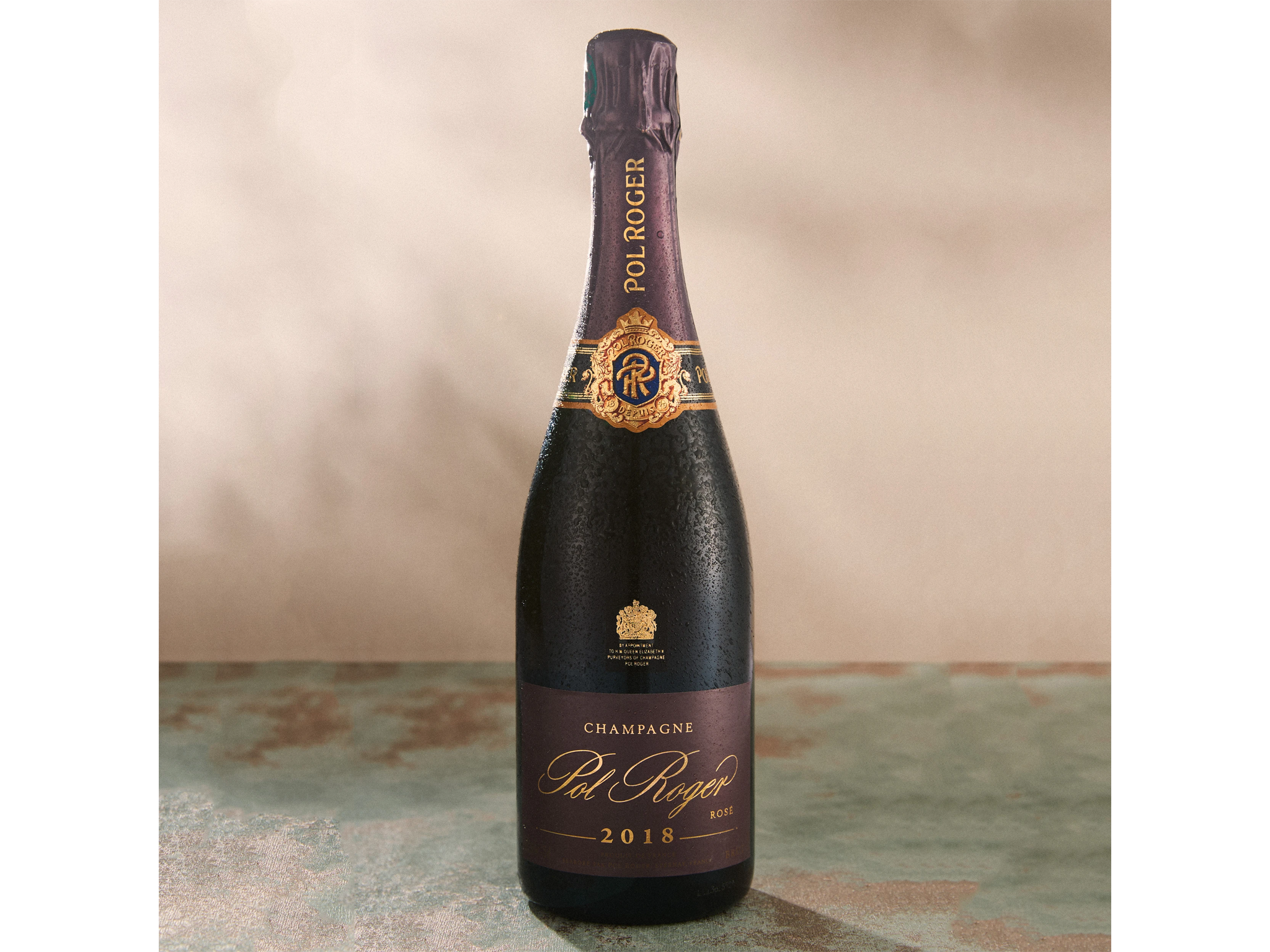
- Best: Independent champagne
- Vintage: 2018
- Grape varieties : Pinot noir, chardonnay
- ABV: 12%
- Tasting notes: Blood orange, plum, strawberry and tangerine
- Why we love it
- Glittering bubbles
- Complex yet refreshing
Young Pol Roger was just 19 when he began his champagne estate and it remains a family-run enterprise today, with fifth-generation Hubert de Billy at the helm. Despite the prestigious reputation, it’s just a team of 10 producing these beautiful bubbles. The vintage rosé is produced from 20 grand and premier crus and fermented at a cooler-than-average temperature, resulting in its signature fine and glittering bubbles. Aromas of wild strawberries, red berries, and citrus lead to a palate of blood orange, plum, and delicate tangerine notes. Complex yet refreshing, its bright acidity and chalky texture give it a gastronomic edge. The poise between delicacy and intensity is perfect.
Champagne Laurent-Perrier la cuvee magnum
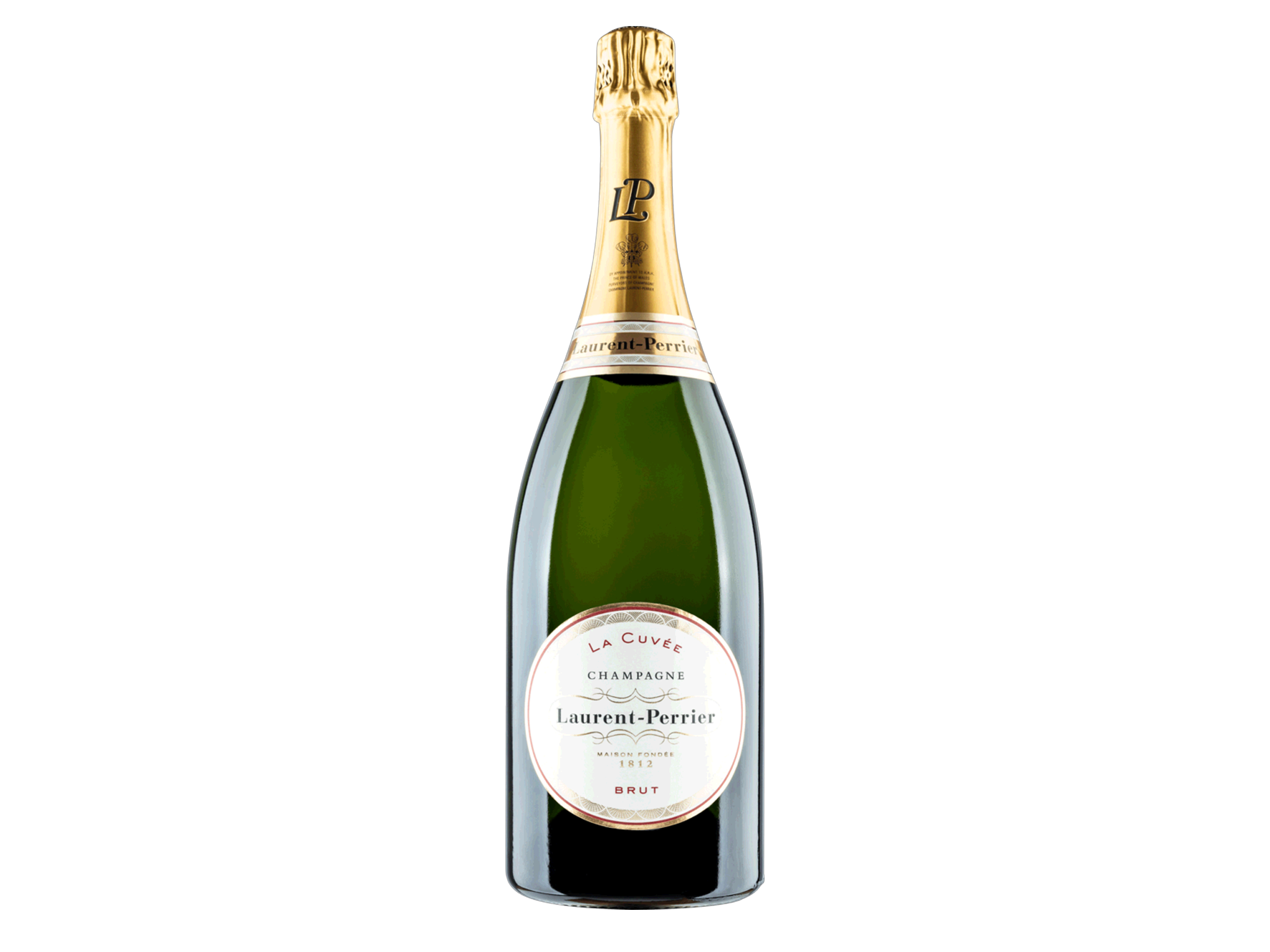
- Best: For celebrations
- Vintage: NV
- Grape varieties : Chardonnay, pinot noir, pinot meunier
- ABV: 12%
- Tasting notes: White flowers, lemon and stone fruits
- Why we love it
- Crisp palate
- Affordable magnum
Champagne royalty, Laurent-Perrier has given its classic brut NV a sophisticated makeover, upping the chardonnay percentage to over half, tempering the sweetness and ageing for up to four years. Once it’s released, it pours a pale gold with a fine persistent mousse, delivering distinct citrus and white flower aromas. That lemon continues into a crisp palate yet retains richness with tasty stone fruits and a surprise smoke to the finish. Perfect as an apéritif, this magnum format makes sure that there’s plenty to celebrate – the exceptional value for one.
Bruno Paillard rose premiere cuvee magnum
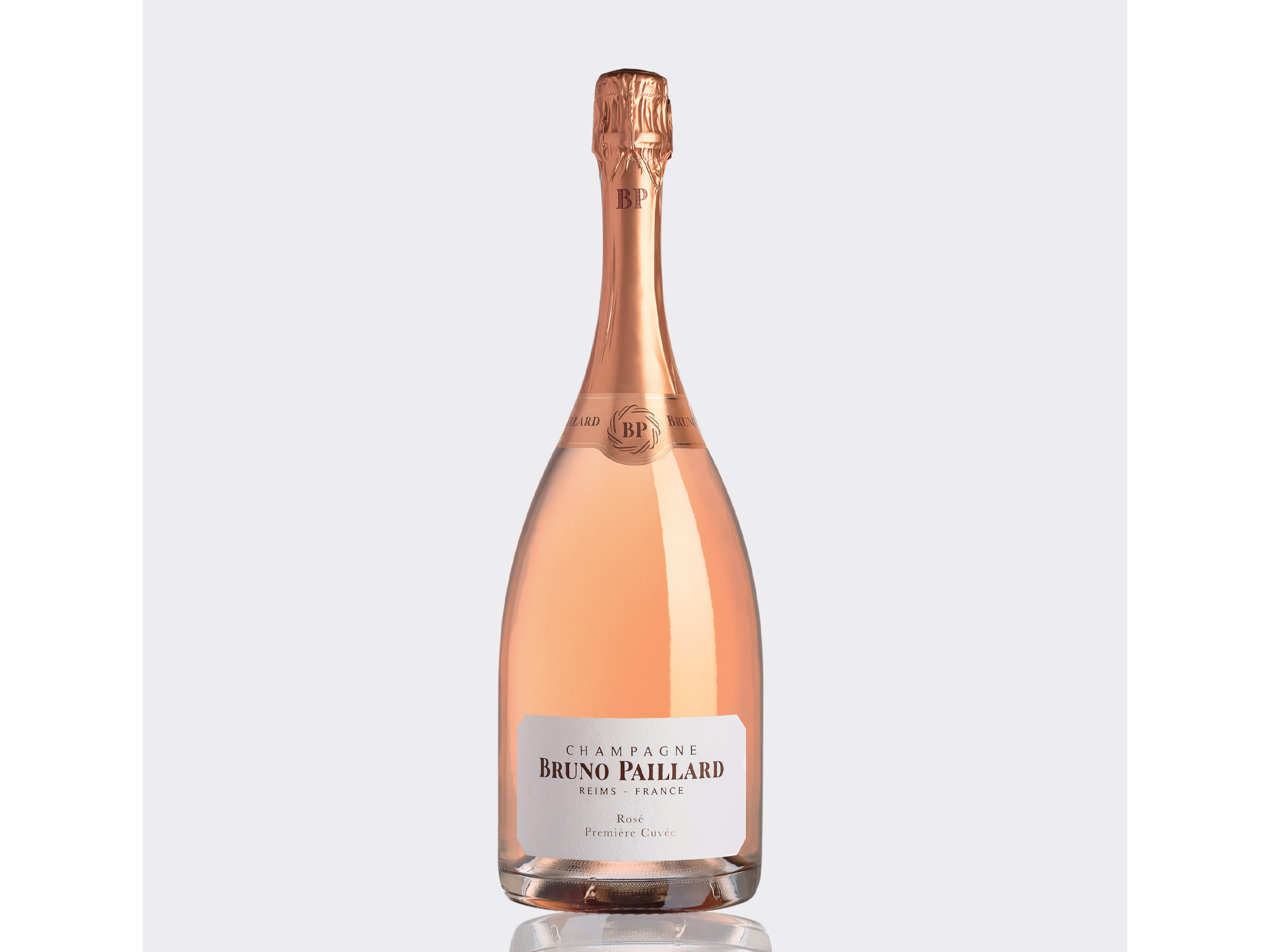
- Best: For Christmas feasts
- Vintage: NV
- Grape varieties : Pinot noir, chardonnay
- ABV: 12%
- Tasting notes: Raspberry, cranberry and peach
- Why we love it
- Crisp fruitness
- Perfectly balanced
This exquisite rosé champagne is a tribute to the elegance of pinot noir, crafted with meticulous care by the independent Bruno Paillard House. A copper-tinged salmon pink, it entices with aromas of peach, raspberry, citrus, and delicate violets. The fine bubbles create a silky, creamy texture, while the low dosage enhances its crisp freshness. Balanced notes of cranberries and subtle chalky minerality linger on the palate. Perfect with charcuterie, light poultry, or a selection of hard cheeses, the stars have aligned for this magnum to be the perfect choice for festive gatherings and feasts.
Bollinger la grande annee rose 2015
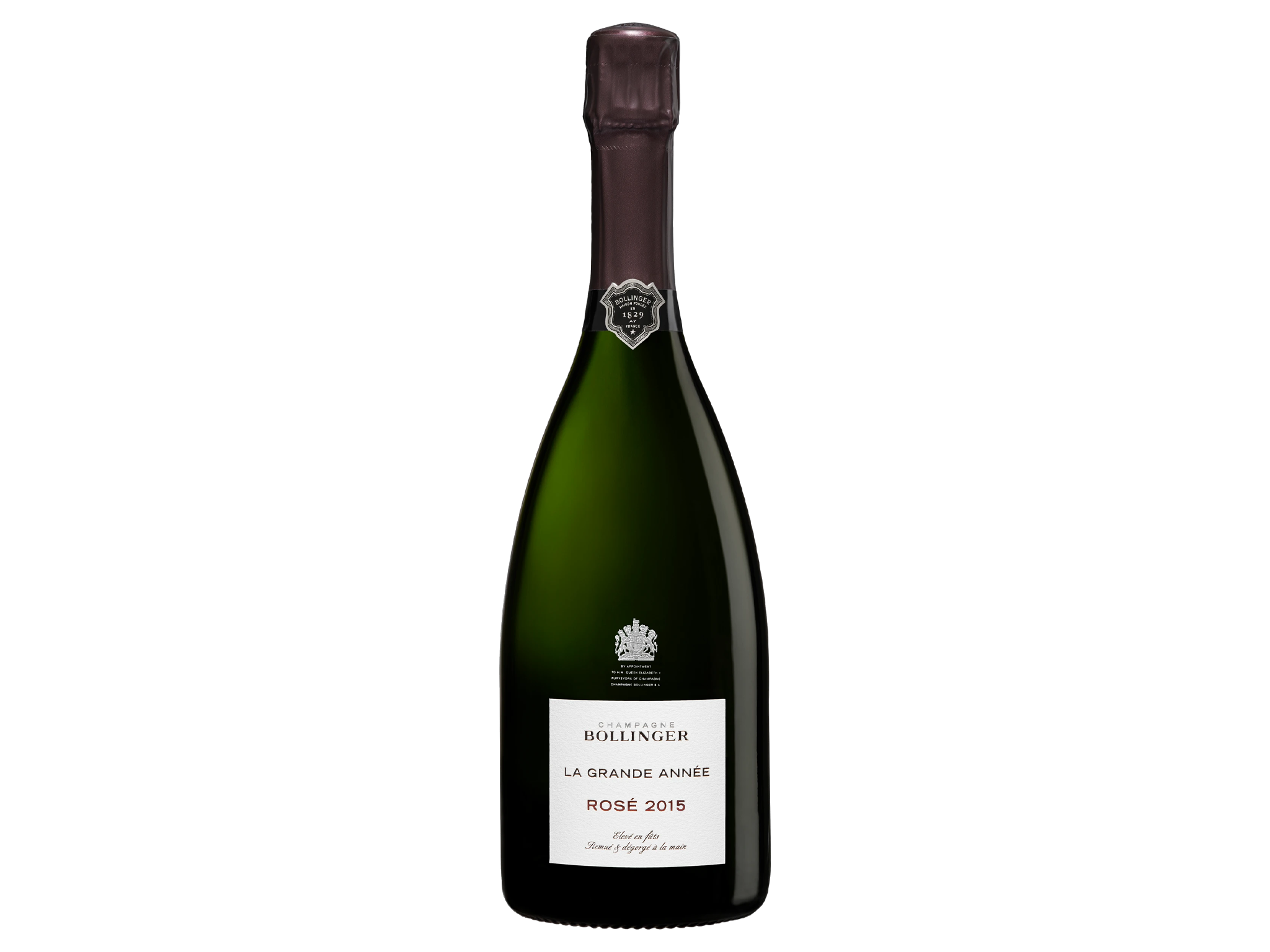
- Best: Special gift
- Vintage: 2015
- Grape varieties: Pinot noir, chardonnay
- ABV: 12%
- Tasting notes: Almonds, orange peel and orchard fruits
- Why we love it
- Depth
- Oily texture
Bollinger and luxury champagne go hand in hand, and this is its rosé masterpiece from the 2015 harvest, blending 62 per cent pinot noir and 38 per cent chardonnay, with five per cent pinot noir vinified as red wine from the legendary Côte aux Enfants plot. Aged on lees for nearly a decade, it offers aromas of sugar-dusted almonds, citrus, and savoury nuances. The palate is opulent, with vibrant acidity, silky tannins, and a fine mousse. That youthful, fresh fruit is definitely retained but matched with the quality red wine and ageing, there’s so much depth to explore and a lovely oiliness to the texture.
Rare brut millesime 2012

- Best: For intensity
- Vintage: 2012
- Grape varieties: Chardonnay, pinot noir
- ABV: 12%
- Tasting notes : Mango, cocoa, brioche, lemon and white flowers
- Why we love it
- Reflects decades of dedication
A masterpiece from Piper-Heidsieck, this 2012 vintage showcases chardonnay-dominant elegance. Its graceful bouquet unfurls with golden fruits, hazelnut, and cocoa, alongside exotic hints of mango and fig. The palate reveals vibrant lemony acidity, white flowers, and a subtle smokiness, balanced by emerging flavours of brioche, butter, and mineral notes. Its refined effervescence and genuinely remarkable depth reflect decades of dedication. Utterly impressive – a reminder of why champagne can be so special.
Pol Roger Sir Winston Churchill 2015
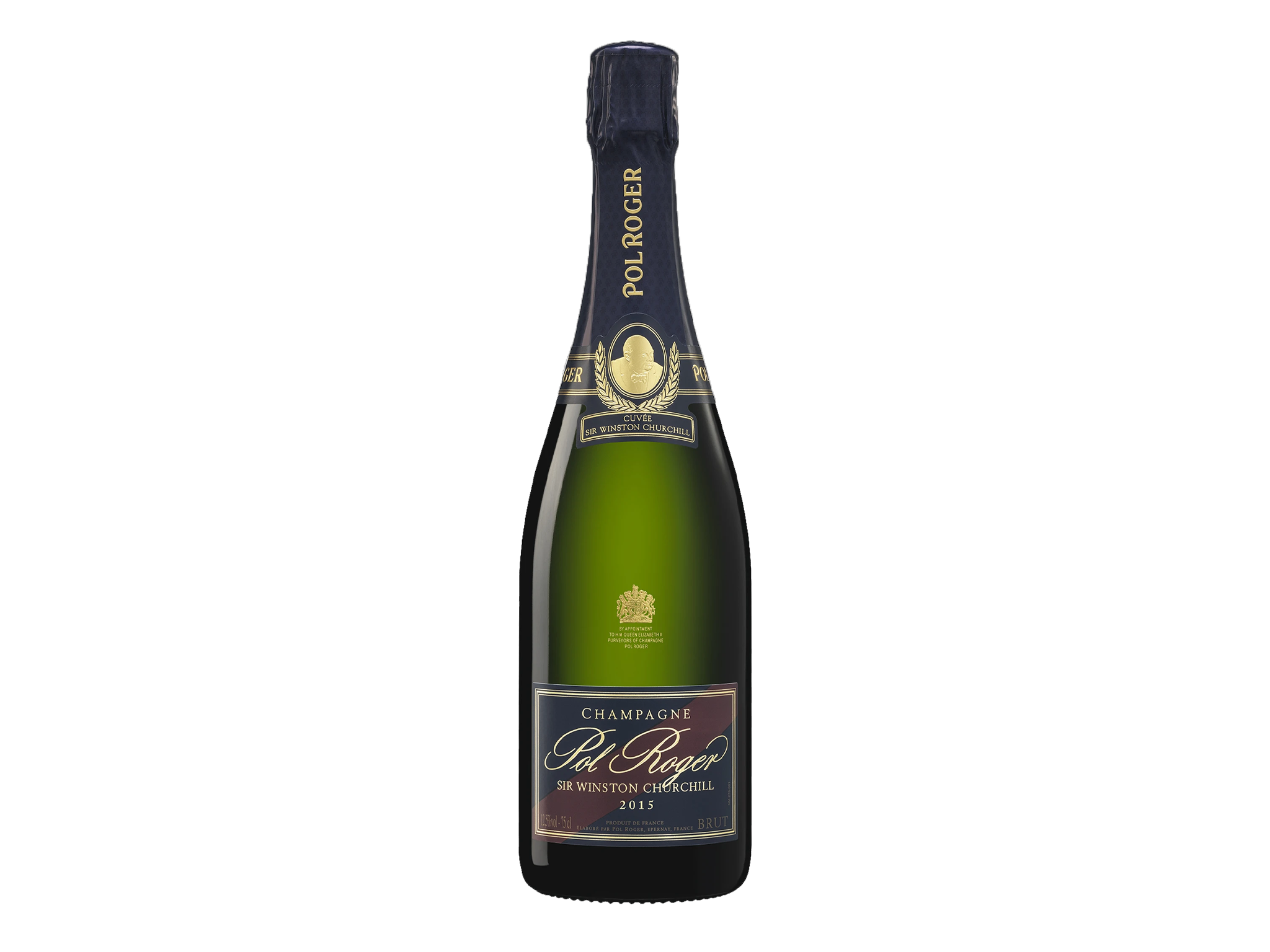
- Best: Indulgence
- Vintage: 2015
- Grape varieties : Secret (Likely pinot noir dominant with a little chardonnay)
- ABV: 12%
- Tasting notes: Brioche, butter, cream, dried fruits and hazelnut
- Why we love it
- Depth and complexity
- Well matured
Paying homage to its most famous admirer, this cuvée embodies Churchill’s preference for robust and mature champagne. He first tasted it in 1945 and a friendship blossomed, where he would receive a case every year from that point. Crafted from grand cru pinot noir and chardonnay (in a secret blend), the 2015 vintage dazzles with aromas of spice, hazelnut, and dried fruits, underpinned by toasted brioche and candied citrus on the palate. Its rich, creamy mousse and seamless acidity enhance its depth and complexity. Mature, succulent, exceptional champagne.
Pommery ‘cuvée Louise’ 2006

- Best: Older vintage gem
- Vintage: 2005
- Grape varieties: Chardonnay, pinot noir
- ABV: 12%
- Tasting notes: Peach, hazelnut, vanilla and minerality
- Why we love it
- Rare
- Refined finish
Crafted in honour of Louise Pommery, this grand cru champagne epitomises finesse and purity. From the prized vineyards of Avize, Cramant, and Ay, its nose unveils floral notes of hawthorn and peach, as you’d expect from a late disgorged fizz. These are then enriched with hazelnut, vanilla, and a hint of tobacco from the extended ageing. On the palate, its creamy texture and harmonious minerality lead to a refined finish with honey and citrus, as the promise of a seductive nose is realised with each sip. The way Pommery hops between delicate flavours, firm structure and velvety mouthfeel is stunning – there’s almost too much to enjoy at one time.
Louis Roederer cristal 2015
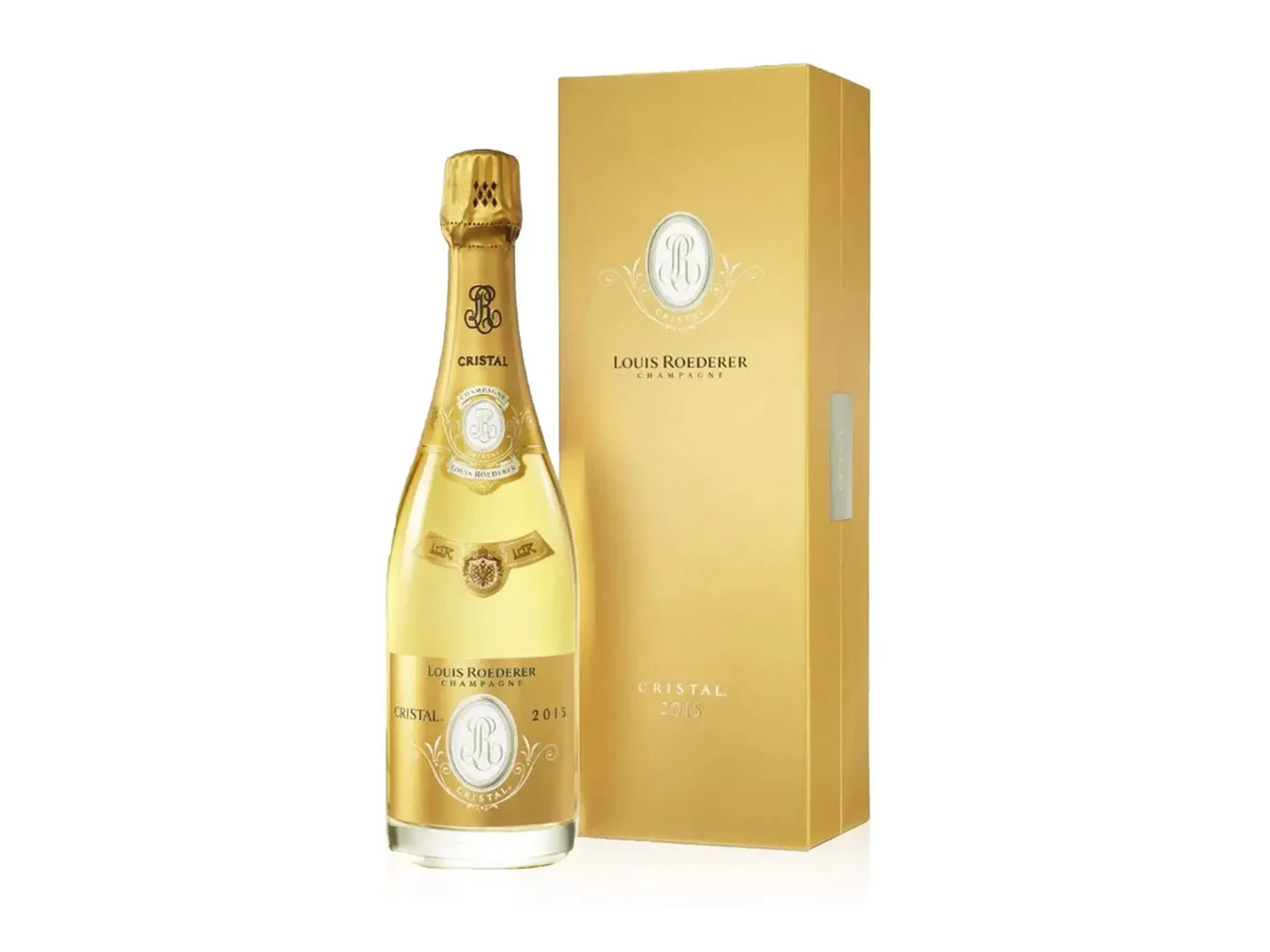
- Best: For biodynamic perfection
- Vintage: 2015
- Grape varieties: Pinot Noir, chardonnay
- ABV: 12.5%
- Tasting notes: Peach, almond, cream, citrus confit and red fruits
- Why we love it
- Vibrant palate
- Perfectly balanced
- Iconic wine
A biodynamic triumph, Cristal 2015 undoubtedly sits at the pinnacle of champagne craftsmanship. Blending chardonnay and pinot noir from seven grand crus, it delights with aromas of white peach, toasted almond, and candied citrus. Aged for more than six years on lees, its vibrant palate balances creamy texture with red berry freshness, finishing with saline, slightly oaky elegance.
Simply put, it does everything to perfection, including its own biodynamic vineyards, the largest independent family-managed champagne house, and deep, perfectly poised flavours – no wonder this is one of champagne’s most iconic wines. Worth every penny.
Krug rosé champagne

- Best: Unforgettable rosé
- Vintage: NV
- Grape varieties: Chardonnay, pinot noir, pinot meunier
- ABV: 12.5%
- Tasting notes : Cranberries, strawberries, wild flowers, honey and pastries
- Why we love it
- A once-in-a-lifetime rosé
In an industry full of competing prestigious names, some say Krug sits on the throne. A bottle of Krug is a rare thing for most of us, renowned for building up a specific vintage with complementary additions from other years.
This is a once-in-a-lifetime rosé of incomparable complexity and elegance. The open and inviting nose enchants wild berries, wildflowers, honey and pastries, and as the pinot noir-led masterpiece truly blooms in the mouth, five years of maturing come to the fore. Rich and silky, dried cranberries, strawberries and exotic spices echo around the mouth. Krug is forever tinkering with changing styles, hence its use of reserve wines, treating champagne as it should be treated; as an art and a science.
The verdict: Champagnes
Bringing quality of taste, pricepoint and older vintage into the equation, we were really blown away by Porte Noire’s 2013 blanc de blanc grand cru. If you haven’t had a moment to learn about where this remarkable champagne is produced, it’s well worth a read. The rich history behind the talent and craftsmanship going into each and every bottle is something to be celebrated and the elegance of the liquid inside will undoubtedly put a smile on your face.
While the house may be associated with Idris Elba, make no mistake, this is not just a “celebrity” bottle, it is so, so much more. A distinct richness and elegance come across on the palate with a nose that just keeps on giving and giving. The only issue you’ll find here is that once the bottle is finished, you’ll want another immediately.
For something more affordable and on the supermarket front, we were particularly delighted with own-label expressions from Aldi, Sainsbury’s and Waitrose – the bottles delivered not only from a quality standpoint but also don’t break the bank.
Want more inspiration? Browse our tried and tested round-up of white wines
Voucher Codes






